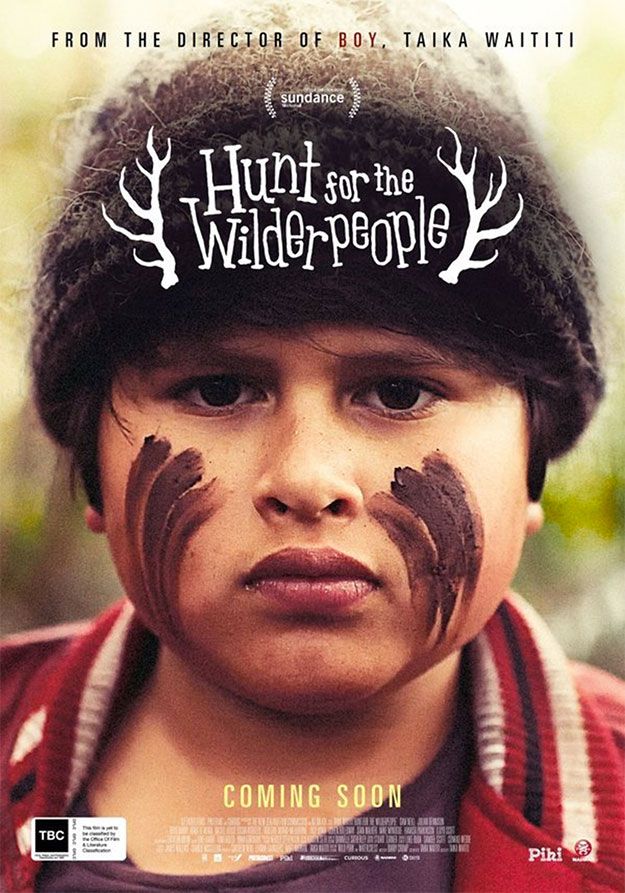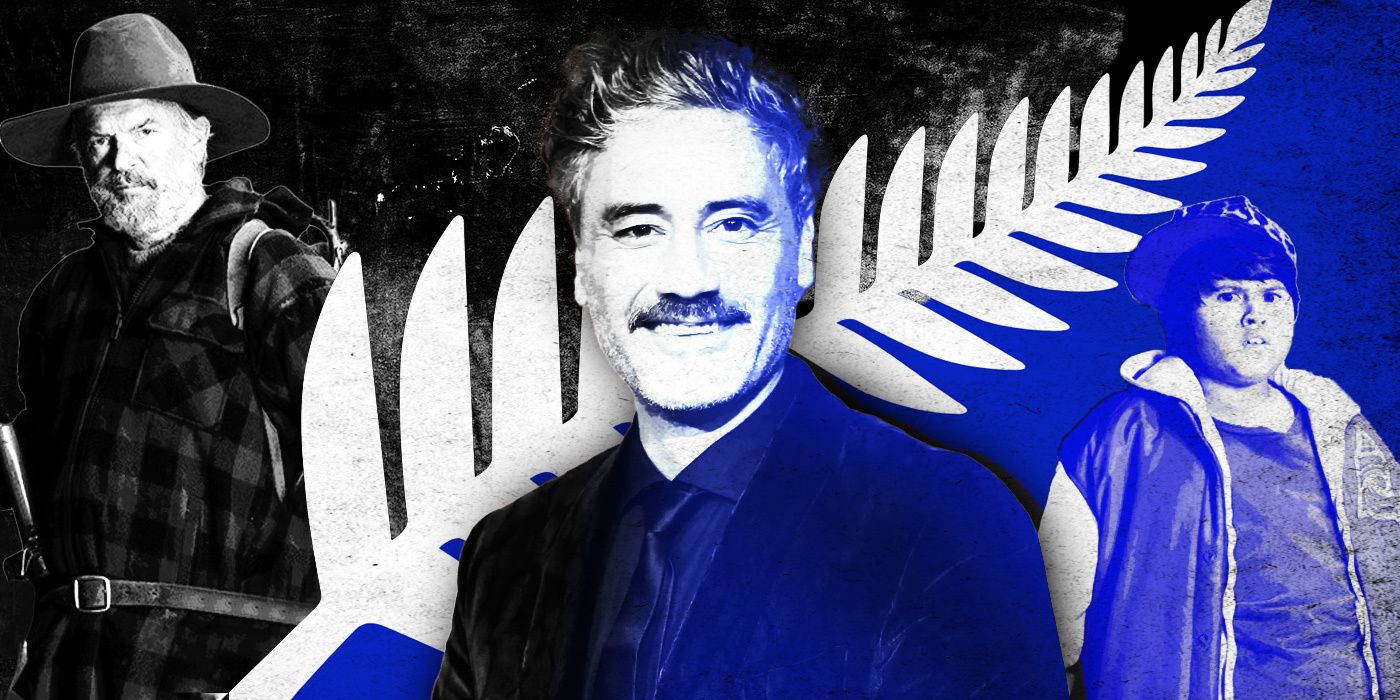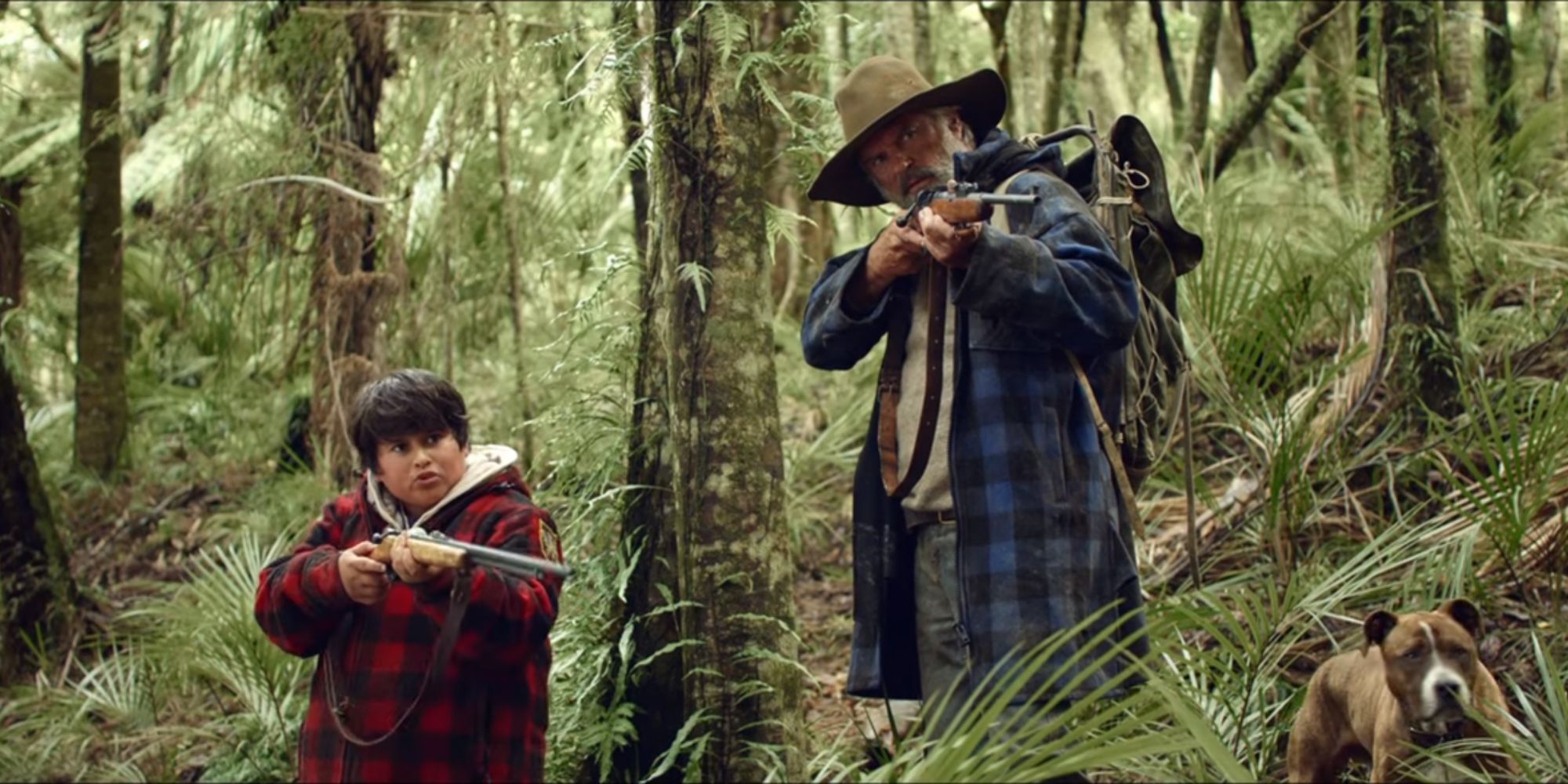The Big Picture
- Taika Waititi's film, Hunt for the Wilderpeople, showcases his love for New Zealand and its people, poking fun at stereotypical characters in a loving and satirical manner.
- The film takes place in the beautiful New Zealand Bush, emphasizing the untouched beauty of the natural landscapes and the importance of preserving them.
- Waititi addresses social issues, particularly the mistreatment of Māori youth, while also celebrating Māori culture and emphasizing the value of community and friendship.
Taika Waititi is a director known for his eclectic brand of comedy, with much of his inspirations and thematic concerns being drawn from his home country of New Zealand. While he may have achieved international recognition for his work on Thor: Ragnarok and Jojo Rabbit, it is his 2016 film, Hunt for the Wilderpeople, that arguably remains his most personal. Every facet of the film reminds the audience of Waititi’s love for New Zealand, its people, and its culture. Hunt for the Wilderpeople is an ode to "the Bush," a concept of the wilderness that has long captured the imaginations of New Zealand filmmakers and writers. However, Waititi takes his trademark affectionate, satirical style to the genre, lovingly poking fun at all the stereotypical New Zealander characters. What is particularly interesting about the film is that Waititi never sacrifices its “New Zealanderness” to cater to an international audience. Every pop culture reference and social issue is meant for his own country’s viewing pleasure, illustrating Waititi’s genuine love for his country.

Hunt for the Wilderpeople
A national manhunt is ordered for a rebellious kid and his foster uncle who go missing in the wild New Zealand bush.
- Release Date
- July 1, 2016
- Director
- Taika Waititi
- Cast
- Sam Neill , Julian Dennison , Rachel House
- Runtime
- 1 hr 41 min
What Is 'Hunt for the Wilderpeople' About?
An adaptation of Wild Pork and Watercress (Barry Crump), Hunt for the Wilderpeople sees the abandoned Ricky Baker (Julian Dennison) taken in by his foster “Aunt” Bella (Rima Te Wiata) and her grumpy, less enthusiastic husband, Hector Faulkner (Sam Neill). Ricky is initially reluctant to bond with Bella and Hector, as he is quite unsuited to live and work on their rural farm. However, Ricky warms up to Bella after she discusses her family’s traditional origins and gifts him a dog, who the “gansta” obsessed thirteen-year-old names “Tupac.” However, Ricky's happiness is short-lived as Bella’s sudden death leaves him in legal limbo with Hector being considered an unsuitable guardian.
A heartbroken Hector decides to head into the Bush to live in solitude only for Ricky to follow him after he fakes his death in the most paper-thin way possible. Ricky forcibly inserts himself into Hector’s retreat, while Child-Protective Services assumes he’s been kidnapped and leads a nationwide manhunt. Despite the stark generational and cultural differences between the two, Ricky and Hector eventually bond amid their time roughing up in the wilderness and on the run from the law. Ricky matures from an aimless, defensive kid to someone productive and even more emotionally adept than his grieving uncle. Eventually, Hector comes to accept Ricky as his surrogate son just as the film’s gloriously over-the-top final chase scene comes to a conclusion.
The majority of Hunt for the Wilderpeople is set in rural New Zealand, with the gorgeous Waitakere Ranges serving as the main filming location. "The Bush" as it is known has often been romanticized in New Zealand folklore, as a place of untamed beauty that represents a severe contrast to the urban progression and loss of traditional values in contemporary society. Indeed, the Bush, or Te Ngahere, is considered sacred in Māori mythology, as it was the home of the Gods and other spiritual creatures. As such, Ricky seems to be undergoing his own spiritual journey throughout the film, becoming more in tune with the natural world around him. The film emphasizes the rough-and-tough living style of those in the Bush, never leaving out the more disturbing details like being unable to use sanitary items or access your favorite television channels.
'Hunt for the Wilderpeople' Is a Celebration of Māori Culture
Still, Ricky and the audience come to appreciate the untouched beauty of the New Zealand Bush. Luscious, green woods form the backdrop for most of Ricky and Hector’s developing friendship, while mountaintop peaks give breathtaking views of rivers winding through natural landscapes. The two even manage to see an almighty Huia, an extinct native bird known for its sheer beauty and its place in Māori culture. In New Zealand’s North Island, the bird’s glossy black feathers were often given as gifts or traded for greenstone, sharks’ teeth, and other valuables. It is this Huia bird that inspires Hector and Ricky to return to the Bush at the end of the film, intent on rediscovering a natural wonder lost to time.
As a nation that is often whitewashed in international media, Taika Waititi places the Indigenous Māori people at the center of his film, reflecting the director’s own ancestry. Ricky Baker’s abandonment in the New Zealander's foster system is indicative of the wider mistreatment of Māori youth. “There’s no more homes – just juvy. They don’t care about kids like me, they just moving us around until kids like Amber …” Ricky explains to Hector, referring to the fact that Māori youth are disproportionately mistreated and imprisoned by the system. However, Waititi is careful to hint at his social criticisms rather than overtly say so, as much of the film still remains a celebration of Māori culture. Kahu (Tioreore Ngatai-Melbourne) and her dad’s (Troy Kingi) immediate bond with Ricky showcase the Māori’s close-knit community which emphasizes altruism, kinship, and protection.
Kahu uses typical New Zealander youth slang and vernacular including, “I’m talking heaps, eh? Yeah people say I talk too much. You don’t talk too much, eh? I can talk for ages…Like this one time, I was in school, and I was talking too much, and the teacher walks in…I’m listening to her because she’s my Auntie…” The film is filled with pop culture references, including that of the National Rugby League team, the Warriors, which Kahu’s dad deems to be koretux, slang for the Māori word for useless or koretake. Waititi peppers in other slang words like chur (meaning yes or thanks), while even giving Ricky his own signature word, skuxx, which is synonymous with “gangsta.”
'Hunt for the Wilderpeople' Is Taika Waititi's Love Letter to New Zealand
As contemporary New Zealand is a blend of cultures, so is Hunt for the Wilderpeople. At its core, the film is about two diametrical opposites overcoming their differences; old and young, rural and urban, and Pākehā and Māori. Pākehā is Māori slang for any foreigner (or non-Indigenous person) but usually refers to a White New Zealander, in this case, Hector. Per Waititi’s satirical nature, Hector is another loving parody of a common New Zealand stereotype, that of the “Southern Man.” The Southern Man prefers the solitude and conditions of mountainous, rural New Zealand while being completely out of his depth in an urban environment.
In line with the stereotype, Hector represents the common stock character of the “man alone,” known for his existentialism, unsociability, and non-conformity. As Hunt for the Wilderpeople portrays a clash of generational ideals, Hector represents a fleeting existence that is disturbed by the change in traditional ways of living while enabling Ricky’s own reconnection to the Bush. Waititi distinctly never denigrates closely-held traditions, instead emphasizing how they can be reclaimed through mutual, multi-generational cooperation.
Hunt for the Wilderpeople remains an expression of love for Waititi’s home country through its playful, satirical takes on stereotypical characters and cultural artifacts. However, Waititi doesn’t just take a comedic approach to New Zealander and Māori culture, instead instilling his film with a genuine appreciation of rural living. Ultimately, the film acts as a reminder to preserve the world’s precious, natural landscapes, with an emphasis on community and friendship as being an important safeguard for areas that have become so threatened in such an industrialized world.
Hunt for the Wilderpeople is available to stream on Netflix in the U.S.


